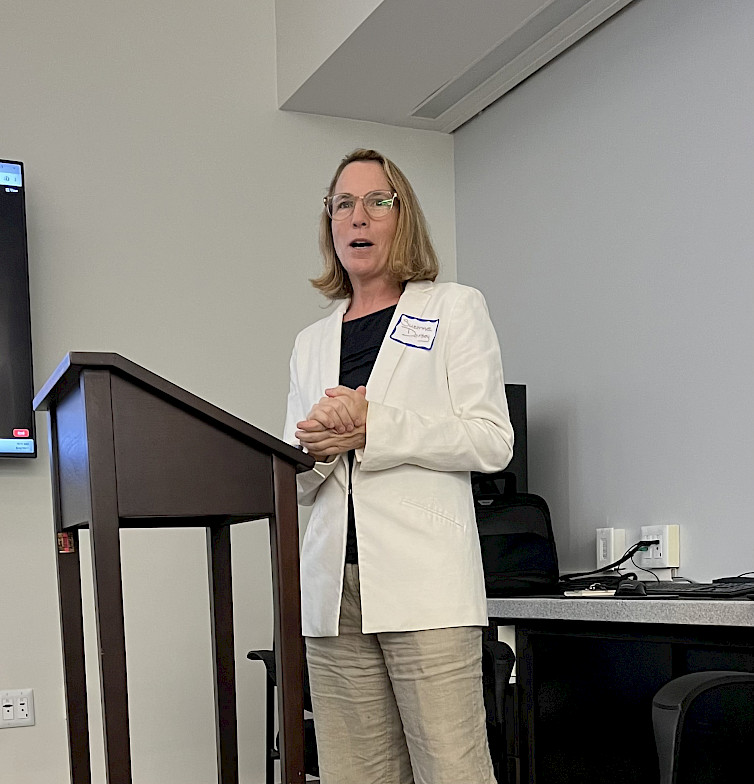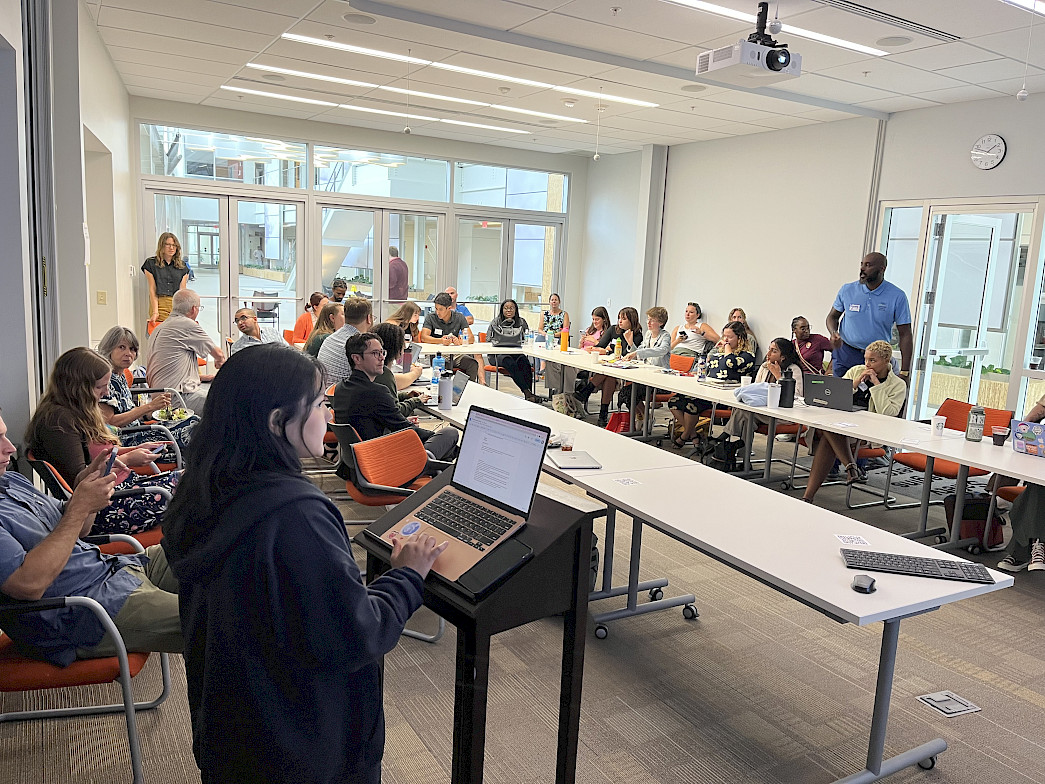Attending the 2023 C-StREAM Symposium
Bill Dennison ·Randy Rowel organized the annual C-StREAM Symposium at the Smithsonian Environmental Research Center on 4 August 2023. Sixteen student interns presented the results of their projects, following a couple of plenary speakers.
The first speaker was my friend Dr. Suzanne Dorsey, Deputy Secretary of the Maryland Department of Environment (MDE). Suzanne gave an exceptional talk, emphasizing the need to develop equity around environmental stewardship and she spoke about the urgency of dealing with climate change. She told a story of when she was a graduate student on a research vessel and she was working on deck when her advisor suggested that she step aside to let the men handle the gear. Suzanne was taken aback, but she used this opportunity to watch closely what the men were doing, and then use her so-called “soft skills” to work with them to develop the skills to be able to master these tasks. This led her to her first of three pieces of advice, “Lean into fear”. Suzanne said to use fear to motivate learning and increase competencies. The next piece of advice was “Be curious”. She emphasized the need to continue to learn—education does not stop when you leave school. Suzanne’s third piece of advice was “Be humble”.

She told the story of an intern that she was supervising who suggested that they organize a 5K run to help promote their programs. Suzanne didn’t really understand how a 5K run would be useful, but she went along with it. It turned out that the 5K run was extremely successful at both communicating about their program but also was useful for raising money. The final comment that I really liked was when Suzanne encouraged the interns to “Use your network to be a network”. Suzanne was followed by Mackenzie Smith, a Towson University student who returned to work with MDE after a C-StREAM internship last summer. Mackenzie has become a real C-StREAM ambassador.
One of the things that I enjoyed about how the C-StREAM interns reflected on their experiences. Dr. Denice Wardrop, the Chesapeake Research Consortium Executive Director, employed the rubric of five key competencies: 1) Civic responsibility, 2) Ethical reasoning, 3) Systems thinking, 4) Professional development, and 5) Multicultural awareness (also referred to as Social justice awareness and activism). Denice conducts pre- and post-surveys of interns and found that the students generally score themselves lower in these competencies at the end of the summer. Denice interprets this surprising result as an example of the interns realizing what they don’t know. I am going to recommend that we employ this approach with our Global Sustainability Scholar program in the future.

A brief description of the student intern's projects:
- Alexus Stelfox (University of Maryland) talked about connecting with the agricultural community through interviews.
- Bria Dixon (Penn State University) talked about assessing stream restoration in a tributary of the Anacostia River.
- Brooke Kleine (St. Mary’s University of Minnesota) showed maps of where biosolids (the sludge recovered from sewage treatment) are applied to farm fields. I was excited to see the alignment of regions with high biosolids application, particularly in Virginia, with our recently published Environmental Justice Index map.
- Lena Mahyoub (Virginia Tech) provided an interesting example of providing a truthful and inclusive interpretation of the Arlington House from Robert E. Lee’s family.
- Mackenzie Smith (Towson University) talked about the inter-agency blue carbon policy brief that she worked on. At the lunch break, I alerted her to my “Seagrass Blue Caron Blues” song.
- Hannah Brown (Binghamton University) provided data on the salinization of groundwater in Norfolk, Virginia where sea level rise is leading to groundwater intrusion of seawater.
- Allison Welch (Penn State University) provided an overview of various citizen science programs that the Isaac Walton League is involved with (e.g., Save Our Streams, Nitrate Watch).
- Will McGrath (Rensselaer Polytechnic Institute) made some sobering calculations about the considerable amount of effort that it would take to achieve the Chesapeake Bay Program goal for riparian stream buffers (900 miles per year).
- Anoosh Taquir (George Washington University) developed information-rich story maps with the Integrated Trends Analysis Team of the Chesapeake Bay Program.
- Emma Chuang (Oregon State University) developed resource guides for tribal nations in Virginia.
- Catherine Carrion (Virginia Tech) ) tested the utility of acoustic arrays for fish assessments in waters of Tlighman Island and Poplar Island. Catherine’s supervisor was Wilmelie Cruz-Marrero, one of my former students in the Marine Estuarine Environmental Science graduate program, so I was happy to see that she employed good science communication techniques.
- Emma Venarde (Brown University) explained the bouy and sensor arrays that the NOAA Chesapeake Bay Office is deploying in the Bay, including the task of “barnacle busting” needed to maintain the gear.
- Claire Burnet (Dickenson College) described how climate change education provided answers to the questions “What brings you joy?”, “What are you good at?”, and “What work needs doing?”.
- Faith McCarthy (Johns Hopkins University) was known as the ‘intern at large’ at the Oxford Cooperative Lab and she helped out with a vibrio forecasting and blue catfish research.
- Seychelle Brainard (Smith College) conducted settlement trials on nature-based substrates for oyster settlement.
- Kameryn Overton (Tuskegee University) from our Global Sustainability Scholar cohort provided an overview of her engagement with the faith-based community to diversify our stakeholder listening sessions.
About the author
Bill Dennison

Dr. Bill Dennison is a Professor of Marine Science and Vice President for Science Application at the University of Maryland Center for Environmental Science.